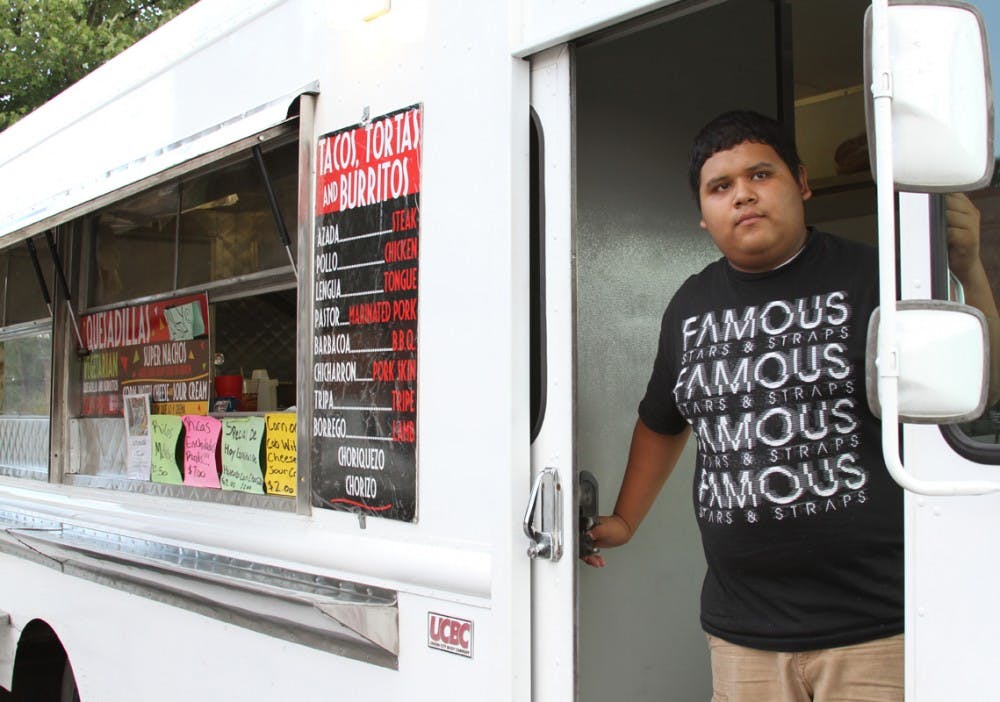Since then, several amendments have been made to the proposal, most of which have relaxed potential food truck regulations.
Mark McCurry, Chapel Hill’s mayoral aide, said the debate has gone on for so long because the council wants to protect downtown businesses. He said the restaurant community is divided on the food truck issue, but those opposed have been very vocal.
Trucks’ impact on business
Both the Chapel Hill-Carrboro Chamber of Commerce and the Chapel Hill Downtown Partnership have opposed food trucks.
“We worry that in this tough economy these trucks present a low-barrier competition that restaurants may not be able to handle,” said Kristen Smith, director of public policy for the chamber.
But Bill Kalkhof, president of Downtown Durham Inc., said that though Durham has a booming food truck scene, 15 new restaurants have opened in downtown Durham since June 2010 and nine are opening soon.
“A large number of these trucks existed preceding the boom that we have now,” said Steve Medlin, planning director for the city and county of Durham.
And Jody Argote, owner of Parlez-Vous Crepe in Carrboro, said her truck attracts people who then spend time and money in the county.
“People would come from all over the place for the crepes and would go (to a nearby shop) for a cup of coffee,” she said.
Jim Norton, the executive director of the Chapel Hill Downtown Partnership, said Durham’s experience should not be applied to arguments about food trucks in Chapel Hill because that would be like “comparing apples and oranges.
“They’re two different downtowns,” Norton said. “Chapel Hill has many more restaurants and night spots than Durham.”
Many have said restaurants won’t directly compete with food trucks because they are two very different dining experiences.
To get the day's news and headlines in your inbox each morning, sign up for our email newsletters.
“When I want to go downtown to Lantern, I want to go downtown to Lantern, and I’m not going to change my mind,” said Chapel Hill Planning Board member Michael Collins.
Sanitation worries
Katrina Ryan, the owner of Sugarland Bakery, has worried that food trucks are “virtually impossible to regulate.”
But Orange County health inspectors can and do perform random inspections on food trucks, said Jeff Jones, a health inspector for the county.
Food trucks are inspected twice a year while restaurants are inspected one to four times a year depending on their “risk factor,” Jones said.
Food trucks in Orange County do not get a letter grade like restaurants. Instead, they either pass or fail the inspection. The council decided Chapel Hill’s trucks must display inspection materials.
North Carolina has discussed grading food trucks like restaurants, but that would happen in October at the earliest, Jones said.
Orange County requires that food trucks have a commissary, or a permanent facility, that they must return to at least once a day to store food and dump waste.
“Food trucks are just portable kitchens. They must meet the same requirements as restaurants and if they don’t do well we close their facility down just as we do with restaurants,” Jones said.
Jones said Chapel Hill’s approval of food trucks won’t really affect the health department.
“Whatever happens we’ll be prepared to make sure everything is safe.”
Contact the City Editor
at city@dailytarheel.com.




